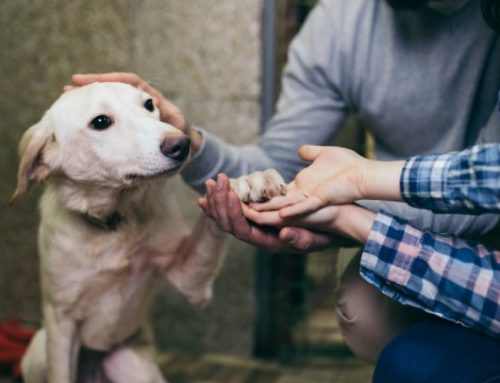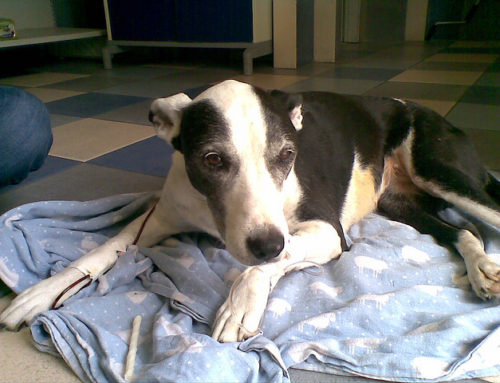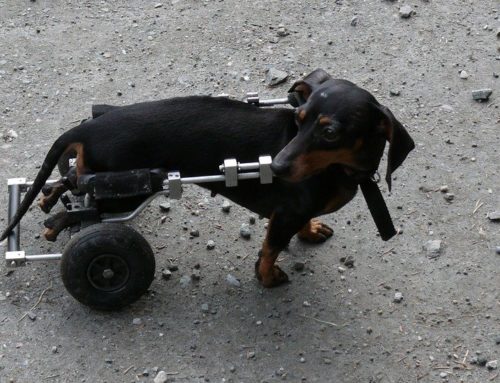Older pet care considerations
What kinds of health problems can affect older pets?
When does a pet become “old”?
A: It varies, but cats and small dogs are generally considered geriatric at the age of 7. Larger breed dogs tend to have shorter life spans and are considered geriatric when they are approximately 6 years of age. Owners tend to want to think of their pet’s age in human terms. While it is not as simple as “1 human year = X cat/dog years”, there are calculations that can help put a pet’s age in human terms:Changes in the home environment may also help you deal with an older pet who is experiencing stiffness and/or pain. Orthopedic beds, stair steps to help an animal up to higher places (so they don’t have to jump), raised feeding platforms, etc. can help make your arthritic pet’s life more comfortable.
| Increased veterinary care | Geriatric pets should have semi-annual veterinary visits instead of annual visits so signs of illness or other problems can be detected early and treated. Senior pet exams are similar to those for younger pets, but are more in depth, and may include dental care, possible bloodwork, and specific checks for physical signs of diseases that are more likely in older pets. |
| Diet and nutrition | Geriatric pets often need foods that are more readily digested, and have different calorie levels and ingredients, and anti-aging nutrients |
| Weight control | Weight gain in geriatric dogs increases the risk of health problems, whereas weight loss is a bigger concern for geriatric cats. |
| Parasite control | Older pets’ immune systems are not as healthy as those of younger animals; as a result, they can’t fight off diseases or heal as fast as younger pets |
| Maintaining mobility | As with older people, keeping older pets mobile through appropriate exercise helps keep them healthier and more mobile. |
| Vaccination | Your pet’s vaccination needs may change with age. Talk to your veterinarian about a vaccination program for your geriatric pet. |
| Mental health | Pets can show signs of senility. Stimulating them through interactions can help keep them mentally active. If any changes in your pet’s behavior are noticed, please consult your veterinarian. |
| Environmental considerations | Older pets may need changes in their lifestyle, such as sleeping areas to avoid stairs, more time indoors, etc. Disabled pets have special needs which can be discussed with your veterinarian |
| Reproductive diseases | Non-neutered/non-spayed geriatric pets are at higher risk of mammary, testicular, and prostate cancers. |
Common warning signs of disease in older pets
| Kidney disease | Urinary tract disease | Heart disease |
|---|---|---|
| Decreased appetite | Increased urination/spotting or “accidents” in the house | Coughing |
| Increased thirst | Straining to urinate | Difficulty breathing |
| Increased urination | Blood in urine | Decreased tolerance of exercise |
| Decreased or no urination | Weakness | |
| Poor hair coat | Decreased appetite | |
| Vomiting | Vomiting |
https://www.avma.org/resources/pet-owners/petcare/senior-pet-care-faq






Leave A Comment
You must be logged in to post a comment.